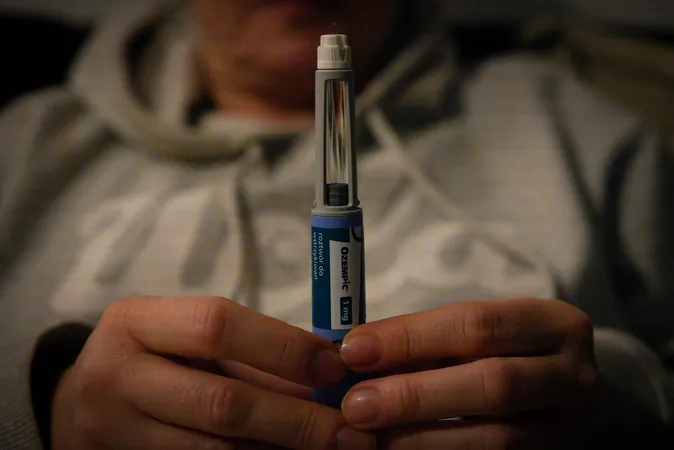
The Obesity Drug Revolution – A Dramatic Shift in Treatment Strategies!
2024-10-28
Author: Sarah
Introduction
A groundbreaking study has revealed a staggering surge in the use of obesity medications, specifically drugs like Ozempic and Wegovy, which more than doubled their usage among privately insured patients from 2022 to 2023. This significant increase comes against a backdrop of declining interest in traditional metabolic bariatric surgery, which has seen a 25.6% drop in procedures during the same timeframe.
Study Overview
Conducted by a team of researchers at Brigham and Women’s Hospital in collaboration with experts from Harvard and Brown University, the findings published in JAMA Network Open provide one of the first comprehensive analyses of this trend in obesity treatment. The study showcases the changing dynamics in medical approaches to combat obesity, highlighting a pivotal shift towards pharmacological solutions.
Key Findings
Our research offers crucial insights into the declining rates of bariatric surgery as the popularity of GLP-1 receptor agonists continues to climb,” stated Thomas C. Tsai, senior author and metabolic bariatric surgeon. The researchers utilized a robust dataset derived from over 17 million privately insured adults to analyze treatment patterns for patients diagnosed with obesity without diabetes during the years 2022-2023.
Trends in Treatment
The analysis found a remarkable 132.6% spike in the administration of GLP-1 receptor agonists, rising from 1.89 to 4.41 per 1,000 patients. Concurrently, the number of patients opting for bariatric surgery decreased from 0.22 to 0.16 per 1,000 patients, indicating a notable shift in how obesity is being treated.
Patient Demographics
Notably, a staggering 94.7% of the patients in the sample received neither surgical nor pharmacological treatment. While some patients benefitted from GLP-1 medications, a mere 0.3% decided on surgical options. The study highlights that candidates for surgery often have more complex medical histories compared to those prescribed medications.
Challenges Ahead
Despite the increased accessibility and efficacy of GLP-1 RAs for weight management and comorbidities (like diabetes), Tsai cautioned about potential barriers such as high costs, supply issues, and gastrointestinal side effects that could lead to treatment discontinuation and weight regain. This is particularly concerning as reliance on these drugs grows, which could affect long-term patient health outcomes.
Need for Further Research
As patients transition from surgical to pharmacological treatments, Tsai and co-author Ateev Mehrotra underscore an urgent need for ongoing research to assess the long-term implications of this shift. With the declining trend in bariatric surgeries, there are fears that access to a comprehensive treatment plan may diminish, ultimately impacting the overall efficacy of obesity management strategies.
Conclusion
These findings present not only a challenge but also an opportunity to enhance the uptake of both surgical and pharmacological treatments for obesity and its related health issues. Currently, less than 6% of patients in the study received any form of treatment, showcasing a critical need for increased awareness and availability of effective obesity interventions.
Call to Action
As the healthcare landscape continues to evolve, clinicians and policymakers are urged to remain vigilant in monitoring access to essential obesity treatments and to support further investigations into the balance and effectiveness of surgical versus pharmacological options in tackling obesity head-on.


 Brasil (PT)
Brasil (PT)
 Canada (EN)
Canada (EN)
 Chile (ES)
Chile (ES)
 España (ES)
España (ES)
 France (FR)
France (FR)
 Hong Kong (EN)
Hong Kong (EN)
 Italia (IT)
Italia (IT)
 日本 (JA)
日本 (JA)
 Magyarország (HU)
Magyarország (HU)
 Norge (NO)
Norge (NO)
 Polska (PL)
Polska (PL)
 Schweiz (DE)
Schweiz (DE)
 Singapore (EN)
Singapore (EN)
 Sverige (SV)
Sverige (SV)
 Suomi (FI)
Suomi (FI)
 Türkiye (TR)
Türkiye (TR)